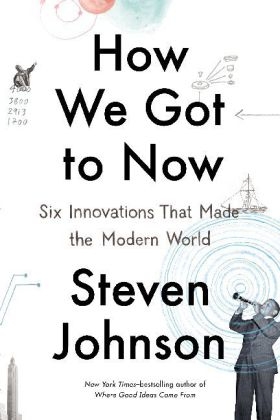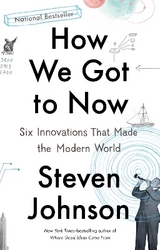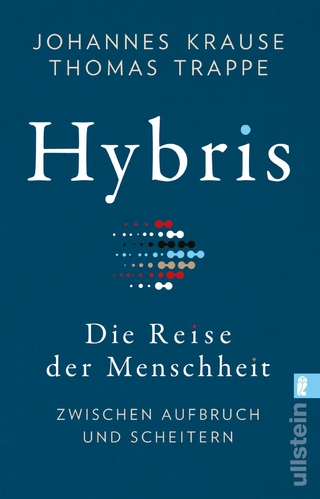
How We Got to Now
Penguin Random House LLC - (Riverhead Books) (Verlag)
978-1-59463-357-7 (ISBN)
- Titel erscheint in neuer Auflage
- Artikel merken
From the New York Times-bestselling author of Where Good Ideas Come From and Everything Bad Is Good for You, a new look at the power and legacy of great ideas.
In this illustrated history, Steven Johnson explores the history of innovation over centuries, tracing facets of modern life (refrigeration, clocks, and eyeglass lenses, to name a few) from their creation by hobbyists, amateurs, and entrepreneurs to their unintended historical consequences. Filled with surprising stories of accidental genius and brilliant mistakes-from the French publisher who invented the phonograph before Edison but forgot to include playback, to the Hollywood movie star who helped invent the technology behind Wi-Fi and Bluetooth-How We Got to Now investigates the secret history behind the everyday objects of contemporary life.
In his trademark style, Johnson examines unexpected connections between seemingly unrelated fields: how the invention of air-conditioning enabled the largest migration of human beings in the history of the species-to cities such as Dubai or Phoenix, which would otherwise be virtually uninhabitable; how pendulum clocks helped trigger the industrial revolution; and how clean water made it possible to manufacture computer chips. Accompanied by a major six-part television series on PBS, How We Got to Now is the story of collaborative networks building the modern world, written in the provocative, informative, and engaging style that has earned Johnson fans around the globe.
Introduction A little more than two decades ago, the Mexican-American artist and philosopher Manuel De Landa published a strange and wonderful book called War in the Age of Intelligent Machines . The book was, technically speaking, a history of military technology, but it had nothing in common with what you might naturally expect from the genre. Instead of heroic accounts of submarine engineering written by some Naval Academy professor, De Landa's book wove chaos theory, evolutionary biology, and French post-structuralist philosophy into histories of the conoidal bullet, radar, and other military innovations. I remember reading it as a grad student in my early twenties and thinking that it was one of those books that seemed completely sui generis , as though De Landa had arrived on Earth from some other intellectual planet. It seemed mesmerizing and deeply confusing at the same time. De Landa began the book with a brilliant interpretative twist. Imagine, he suggested, a work of history written sometime in the future by some form of artificial intelligence, mapping out the history of the preceding millennium. "We could imagine," De Landa argued, "that such a robot historian would write a different kind of history than would its human counterpart." Events that loom large in human accounts-the European conquest of the Americas, the fall of the Roman Empire, the Magna Carta-would be footnotes from the robot's perspective. Other events that seem marginal to traditional history-the toy automatons that pretended to play chess in the eighteenth century, the Jacquard loom that inspired the punch cards of early computing-would be watershed moments to the robot historian, turning points that trace a direct line to the present. "While a human historian might try to understand the way people assembled clockworks, motors and other physical contraptions," De Landa explained, "a robot historian would likely place a stronger emphasis on the way these machines affected human evolution. The robot would stress the fact that when clockworks once represented the dominant technology on the planet, people imagined the world around them as a similar system of cogs and wheels." There are no intelligent robots in this book, alas. The innovations here belong to everyday life, not science fiction: lightbulbs, sound recordings, air-conditioning, a glass of clean tap water, a wristwatch, a glass lens. But I have tried to tell the story of these innovations from something like the perspective of De Landa's robot historian. If the lightbulb could write a history of the past three hundred years, it too would look very different. We would see how much of our past was bound up in the pursuit of artificial light, how much ingenuity and struggle went into the battle against darkness, and how the inventions we came up with triggered changes that, at first glance, would seem to have nothing to do with lightbulbs. This is a history worth telling, in part, because it allows us to see a world we generally take for granted with fresh eyes. Most of us in the developed world don't pause to think how amazing it is that we drink water from a tap and never once worry about dying forty-eight hours later from cholera. Thanks to air-conditioning, many of us live comfortably in climates that would have been intolerable just fifty years ago. Our lives are surrounded and supported by a whole class of objects that are enchanted with the ideas and creativity of thousands of people who came before us: inventors and hobbyists and reformers who steadily hacked away at the problem of making artificial light or clean drinking water so that we can enjoy those luxuries today without a second thought, without even thinking of them as luxuries in the first place. As the robot historians would no doubt remind us, we are indebted to those people every bit as much as, if not more than, we are to the kings and conquerors and magnates of traditiona
| Erscheint lt. Verlag | 31.12.2014 |
|---|---|
| Sprache | englisch |
| Themenwelt | Sachbuch/Ratgeber ► Geschichte / Politik ► Allgemeines / Lexika |
| Geisteswissenschaften ► Geschichte | |
| Sozialwissenschaften | |
| Schlagworte | Ideengeschichte • Innovation |
| ISBN-10 | 1-59463-357-6 / 1594633576 |
| ISBN-13 | 978-1-59463-357-7 / 9781594633577 |
| Zustand | Neuware |
| Haben Sie eine Frage zum Produkt? |
aus dem Bereich



